Share
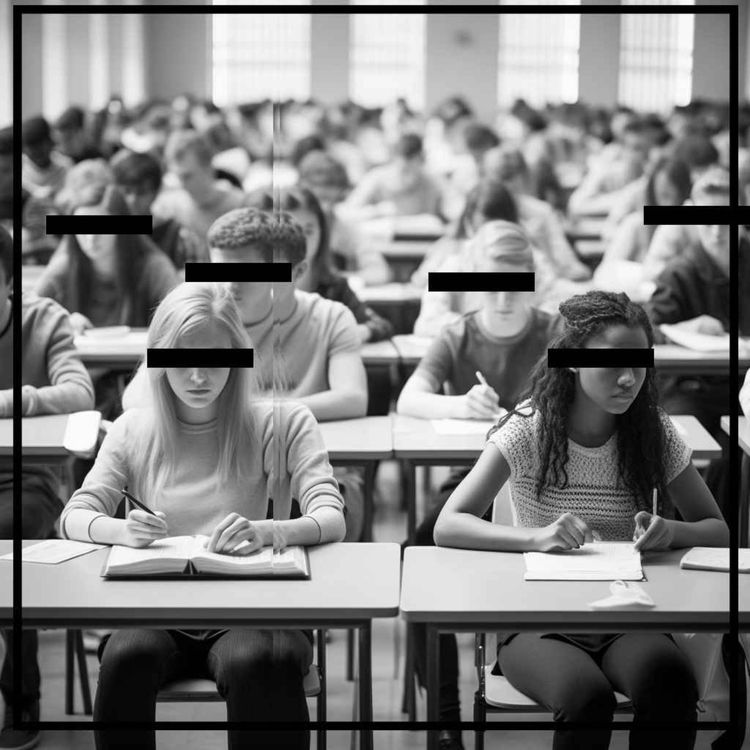
Human Restoration Project
BONUS: The Takeover of Houston ISD w/ Karina Quesada-León
What you just heard were public comments from three community members of Houston Independent School District, the largest school district in Texas, at the center of a controversial state takeover by the Texas Education Agency. The bell you hear in the audio is a hard cut-off for speakers, whose mics were immediately turned off. After working its way through the legal system for several years, last winter, the Texas Supreme Court greenlit the replacement of district superintendent and the locally elected board of trustees by the head of the TEA, appointed directly by the governor of Texas, Greg Abbott, himself. And last month, school was back in session under the newly appointed superintendent, Mike Miles - former US State Department ambassador, charter school CEO, and Dallas ISD superintendent - amid dozens of pedagogical and policy changes that left teachers, parents, and students confused, frustrated, and afraid, as heard in the public comment at the beginning of this episode.
The takeover of Houston ISD sits at the intersection of so many issues impacting American education today - democratic backsliding and the rise of authoritarianism, the so-called parents’ rights movement, testing & accountability measures, poverty, race, and charter schools. On Friday, September 15th, the morning after another heated board meeting in Houston, I spoke with Karina Quesada-Leon, an Houston ISD parent, activist, and former teacher who has been intensely involved in HISD for a decade, and she was generous to speak with me for an hour about the recent history of the majority Hispanic/Latino district, the impact of the takeover on teachers, families, & students, and how they are experiencing the New Educational System of Superintendent Mike Miles, and what’s next for the movement opposed to these reactionary changes.
We are generally not a current-events podcast, but because this is a fast-moving story, we wanted to release it to listeners as soon and as lightly edited as possible. You can also find an overview of the story on our YouTube channel by searching Human Restoration Project. We hope to follow up with Karina and other affected teachers, parents, and students at Houston ISD. If you’d like to reach out to me directly, you can do so by emailing nick@humanrestorationproject.org. And of course you can always find more of our work and support us @ humanrestorationproject.org
Video: The Houston ISD Takeover Punishes Poverty & Subverts Democracy
Twitter: Houston Education Association
Twitter: Karina Quesada-Leon
More episodes
View all episodes
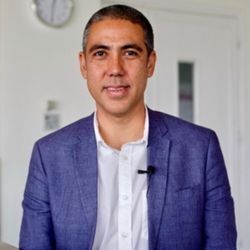
159. The Landscape Model of Learning w/ Dr. Kapono Ciotti
44:42||Ep. 159Quick update: Between recording and release, our guest, Dr Kapono Ciotti, is no longer with What School Could Be and that their PD options have changed. So check out their website @ whatschoolcouldbe.org for details. Enjoy the episode!Today we are joined by Dr. Kapono Ciotti. Dr. Ciotti is the Executive Director of What School Could Be, an organization offering a whole host of things: free resources, a flourishing community, coaching services, graduate coursework, and more; plus WSCB is one of Human Restoration Project’s partners. Prior to this work, Dr. Ciotti grew up in Honolulu, Hawai’i in a progressive, constructivist school and taught in the same area, then in Senegal, and then became a school leader in the United States and internationally. He’s worked in over one hundred schools across four continents, including as national faculty for the National Association of Independent Schools in diversity, equity, and justice.Dr. Kapono Ciotti @ Solution TreeDr. Kapono Ciotti @ PrincipledLearningWhat School Could Be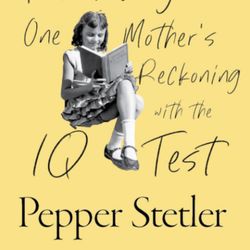
158. A Measure of Intelligence: One Mother's Reckoning with the IQ Test w/ Dr. Pepper Stetler
38:07||Ep. 158Today we are joined by Dr. Pepper Stetler. Pepper’s recently released book, A Measure of Intelligence: One Mother’s Reckoning with the IQ Test documents her journey alongside her daughter, Louisa, who was diagnosed with Down syndrome. It dives into the history and ongoing problematic issues with measuring intelligence, specifically how school and society uphold and reinforce misused and misappropriated labels. Pepper’s work on disability advocacy has appeared in The New York Times, The Atlantic, Slate, and The Washington Post, and she’s also an Art History professor at Miami University.Book: A Measure of Intelligence: One Mother's Reckoning with the IQ Test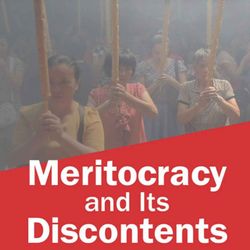
157. Meritocracy, Anxiety, & the Chinese College Entrance Exam w/ Zachary Howlett
52:59||Ep. 157I was not familiar at all with China’s national college exam, the gaokao, until reading about it in Susan Blum’s book, Schoolishness, and talking with her about it on a podcast episode we released in August – episode 152, you should check it out – and I’m incredibly grateful to Susan for making the connection with my guest today. Zachary Howlett is associate professor of Anthropology at the National University of Singapore, joining me from Singapore, and author of the book, Meritocracy and Its Discontents: Anxiety and the National College Exam in China. I thought at first ah, sure, every country has its school gatekeepers and methods of rationing secondary & post-secondary education – the SAT & ACT in the US, or the GCSE’s in the UK, for example – so how is this any different? But what I was not prepared for in Zachary’s work was the sheer magnitude of the gaokao as a deeply Chinese cultural, economic, political, and even a magical and religious phenomenon that touches every aspect of life, and for which there really is no American equivalent. The blurb on the back of the book from Karrie Koesel captures it so well, “Zachary M Howlett opens the black box of the gaokao to reveal that it is not only a fateful rite of passage, but also a complex social phenomenon laid in with ritual, magic, dark horses, examination champions, latent, potential, luck, character building, social inequity, and the possibility of changing one's fate.”Meritocracy and its Discontents book link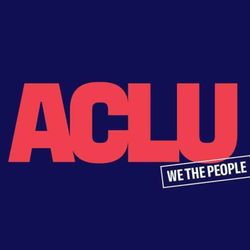
2024 Title IX Update w/ the ACLU
27:59|It’s not every day that you get an email from ACLU. If you aren’t aware, since being co-founded in part by Hellen Keller in New York City in 1920, the American Civil Liberties Union has been involved in dozens of major cases defending the fundamental civil rights of individuals and causes both popular and very much not so. In 1925, the ACLU represented high school science teacher, John Scopes, in what became known as the Scopes Monkey Trial. Nearly 30 years later they played a significant role in the Brown v Board decision overturning “separate but equal” education for Black and white students. So when they reached out wanting to do a podcast episode with us about the state of Title IX in 2024, I had to say yes. In the past we’ve done episodes about how classroom teachers can best support LGBTQ students in potentially hostile policy environments, but we are well overdue for a national look at the current rights under Title IX for LGBTQIA+ students, pregnant and parenting students, and for all students facing sex-based harassment and assault and the obligations schools have to protect them.Jennesa Calvo-Friedman is currently a staff attorney at the ACLU. Previously, she was the Marvin M. Karpatkin Fellow with the ACLU’s Racial Justice Program. Before joining the ACLU, Calvo-Friedman clerked for the Honorable Gerard E. Lynch of the U.S. Court of Appeals for the Second Circuit and the Honorable Ronnie Abrams of the U.S. District Court for the Southern District of New York. She was the Relman Civil Rights Fellow at the civil rights law firm Relman, Dane & Colfax. Calvo-Friedman received her B.A. from Swarthmore College, and her J.D. from Georgetown University Law Center, where she graduated first in class, was a Public Interest Law Scholar and Executive Editor of the Georgetown Journal on Poverty Law & Policy.US Dept of Education Title IX: https://www.ed.gov/titleixACLU Title IX Fact Sheet: https://www.aclu.org/documents/title-ix-fact-sheetGeneral Resources:https://nwlc.org/respect-students/https://www.equalrights.org/news/new-title-ix-rule-goes-into-effect-protecting-lgbtqi-other-students-but-not-in-all-states/Pregnant and Parenting Students:https://thepregnantscholar.org/titleix-updates-toolkit/https://www.abetterbalance.org/our-issues/students-rights-emerging-workforce/Sexual Assault, Sexual Harassment, and Gender Based Violence:https://www.publicjustice.net/what-we-do/gender-sexual-violence/https://www.advocatesforyouth.org/campaigns/know-your-ix/LGBTQIA+:https://www.glsen.org/title-ixhttps://www.aclu.org/know-your-rights/lgbtq-rights#are-lgbtq-students-protected-from-discrimination-in-schoolshttps://legacy.lambdalegal.org/know-your-rights/article/youth-how-the-law-protects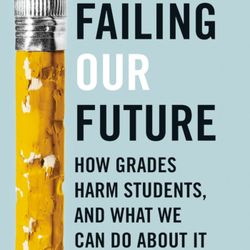
156. How Grades Harm Students & What We Can Do About It w/ Joshua Eyler
44:10||Ep. 156If education had a Hippocratic Oath - First, do no harm - grades and grading would be among the first practices on the chopping block. And in the conversation about grades and grading in school, there are any number of books and blogs educators can look to for figuring out how to de-grade, un-grade, Hack Assessment, and so on, to mitigate the harm grading causes. After all, as these books and blogs reveal, it’s a system educators have a surprising amount of control over. But what about parents who see it weighing on their own kids and young people who feel the weight of the grading system themselves? How do we communicate the real consequences of grades and grading, especially on youth mental health, and the need for change to those on the outside looking in? And what can parents do to help kids who are navigating outmoded grading systems?“Supporting a child who is trying to navigate an educational system that privileges grades and achievement begins, simply, with compassion and love,” my guest today writes, “When children believe that their worth as human beings has nothing to do with the grades they receive, and when they know that the love of their family comes without conditions, they are better able to cope with the negative messages that grades can so often send.”Just one of many powerful lines from my guest, Joshua Eyler, who runs the Center for Excellence in Teaching and Learning and is a clinical assistant professor of teacher education at the University of Mississippi. His latest book is absolutely full of insight for people trying to change the system, we’re talking about Failing Our Future: How Grades Harm Students, and What We Can Do About It, currently available from Johns Hopkins University Press.Failing Our Future
155. The Fantasy Economy w/ Neil Kraus
37:44||Ep. 155Stop me if you’ve heard these before:American public schools are failing,American students are falling behind their global peers,The future of American innovation, economic equality, and global competitiveness depends on schools today preparing students for the job market of tomorrow,School reform is only tool we have to fix these urgent issuesEach of these sentiments have become conventional wisdom at this point, and they’ve appeared in the platforms of both major American political parties if not explicitly, then through familiar buzzwords: school choice, competition, data-driven accountability, college and career readiness, STEM education, and gaps of all kinds: the skills gap, the achievement gap, and the employment gap, to name a few. And when your only tool is a hammer, all your problems look like nails… But it may also be the case, despite the flaws of public education throughout the nation’s history, that American public schools became “failing schools” exactly when they needed to, to fit the needs of politicians and industry, and to fit schooling into the new economic order that came to dominate the last half century. At the global level, this narrative even fuels reactionary stories of civilizational struggle and the “decline of The West. As an Italian economist lamented for GIS Reports earlier this year, “There are only two ways Western educational systems can reverse the current trend and offer more appealing prospects: Allowing private schooling to flourish and Bringing about radical reforms in state schooling.”The most likely outcome, he predicts is a steady decline, writing, “the vicious spiral that links poor education to inequality, social tensions, more government intervention and, finally, low productivity and stuttering economic growth will likely dominate the future of many Western countries for years to come.”This last line captures what my guest today describes as The Fantasy Economy. Neil Kraus is Professor of Political Science at the University of Wisconsin, River Falls. His most recent book, The Fantasy Economy: Neoliberalism, Inequality, and the Education Reform Movement, describes in powerful detail how exactly our popular, bipartisan conventional wisdom about America’s “failing schools” and the decline of of the American student came to be: as the result of a deliberate project to shift the responsibility for economic precarity and inequality away from industry and policy and place it squarely on the shoulders of educators and schools. “Ultimately,” he writes, “ we must see the fantasy economy for what it is—a misleading, political campaign in the interests of corporations and the wealthy.”The Fantasy Economy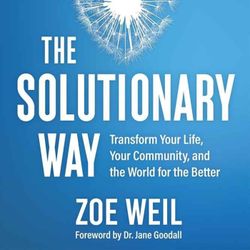
154. The Solutionary Way w/ Zoe Weil
42:46||Ep. 154A “solutionary” has multiple definitions, one of which reads, “A person who identifies inhumane, unjust, and/or unsustainable societal systems and then develops solutions to transform them so that they do the most good and least harm for people, animals, and the environment.”Today we are joined by Zoe Weil who has dedicated her work to creating, spreading the word, and teaching what it means to be a solutionary. She has written eight books including her most recent book we’re talking about today, The Solutionary Way. She’s delivered multiple TEDx talks and keynotes around the world on educating to solve the world’s most pressing problems. And she’s the co-founder and president of the Institute for Humane Education, which has been making serious strides in implementing the Solutionary Framework in schools around the country as well as in their own graduate program.Links:Solutionary Public Policy Webinar with Caitie Whelan and Zoe WeilThe Solutionary Way: Transform Your Life, Your Community, and the World for the Better by Zoe WeilThe Institute for Humane Education
153. Pedagogical Documentation w/ Angela Stockman
47:38||Ep. 153Today we are joined by Angela Stockman. Angela is a veteran secondary English/Language Arts teacher, author, and professional learning facilitator. She has presented at state, national, and international levels and has led curriculum, assessment, and instructional design projects in over 100 school districts.She has written books and resources on writing instruction, including The Writing Workshop Teacher's Guide to Multimodal Composition, Creating Inclusive Writing Environments in the K-12 Classroom, and the recently released The Writing Teacher’s Guide to Pedagogical Documentation: Rethinking How We Assess Learners and Learning, which we're talking about today.Links:The Writing Workshop Teacher's Guide to Multimodal CompositionAngela Stockman's website
Back to School Special: Teaching Love & Learning Freedom w/ Dr. Carla Shalaby
40:35|Many of you are already working to get your classrooms ready and will be welcoming students for the first day in the next couple of weeks, if you haven’t already. It’s a magical and stressful time of year, so we wanted to release Dr Carla Shalaby’s 2024 Conference to Restore Humanity keynote as a “back to school” special podcast. Carla speaks so powerfully to her own practical experience of human-centered education and why we do what we do: moving away from control, surveillance, and punishment, towards a model based on collective care, inclusion, and restorative practice. We hope you find it a great way to center ways of thinking about classroom management that will help get the school year started off on the right foot and sustain community with students throughout the next several months. As Carla reminds us, "Being good at human being requires a ton of work and investment, and perhaps most of all, an intentional rejection of a culture of disposability, the idea that there's ever such a thing as a throwaway person." If you prefer video, that’s up on our YouTube channel as well, just search for Human Restoration Project.Thanks for listening, and we hope you have an amazing school year! Let us know if you need anything.Link to YouTube video